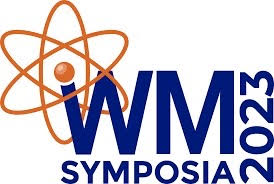May 17, 2023
ALTEMIS scientists won four “Superior Paper” awards at the Waste Management Symposium 2023
ALTEMIS scientists and students participants in the Waste Management Symposium 2023 conference at Phoenix, Arizona on Feb 27 – March 2, 2023. The annual Waste Management Symposium is the world’s largest and most prestigious conference on radioactive waste management & disposal, decommissioning, packaging & transportation, facility siting and site remediation. Four ALTEMIS papers are awarded as “Superior Paper,” to recognize authors and co-authors for distinguished contributions to the advancement of radioactive waste and radioactive material management. Only 74 papers received this honorable recognition at WM2023 from the 500+ papers submitted.
“The DOE-EM ALTEMIS Program: Innovative Approaches to Improve the Efficacy of Monitoring Systems for Complex Radioactive Groundwater Plumes”: ALTEMIS PI Carol Eddy-Dilek from Savannah River National Laboratory introduced the ALTEMIS project, funded by the Department of Energy (DOE) Office of Environmental Management – is implementing technologies to improve efficacy and cost-efficiency of contaminant monitoring at DOE legacy sites, where a complex groundwater plume consisting of a diverse mixture of radionuclides will require monitoring for decades.
“Factors Controlling Contaminant Migration in Zones Created by Attenuation-Based Strategies to Improve Long-term Monitoring”: Hansell Gonzalez-Raymat from Savannah River National Laboratory talked about a new monitoring strategy that de-emphasizes measuring contaminant concentrations in favor of measuring the variables that control attenuation of contaminants at contaminated sites where attenuation-based remedy approaches have been adopted.
“FDL Physics-Informed Surrogate Modeling for Supporting Climate Resilience at Groundwater Contamination Sites”: PhD student Aurelien Meray from Florida International University presented the development of physics-informed deep learning model for estimating hydrological and contamination transport at the SRS F-Area site with an ensemble of reactive transport models. The new model accelerates the remediation of contamination and supporting climate resilience.
“Using Probable Maximum Precipitation to Assess the Climate Resilience of Waste Disposal Cells at the Department of Energy’s Legacy Sites”: Graduate student Connor Geudeker from the University of California, Berkeley, presented his work of algorithms development for computing the Probable Maximum Precipitation (PMP), one of the most important extreme precipitation metric, at DOE EM and LM sites using various climate datasets.
Learn more about this announcement here.

